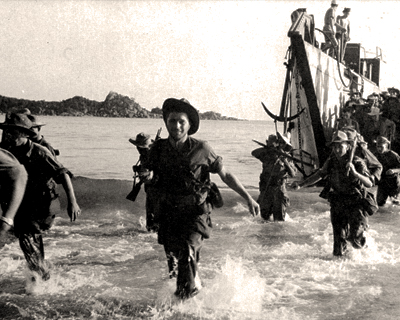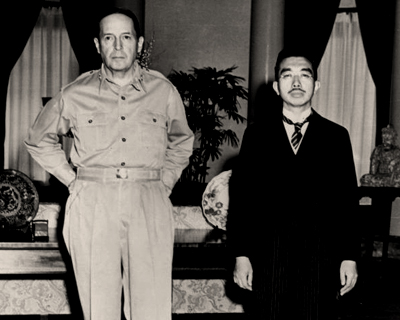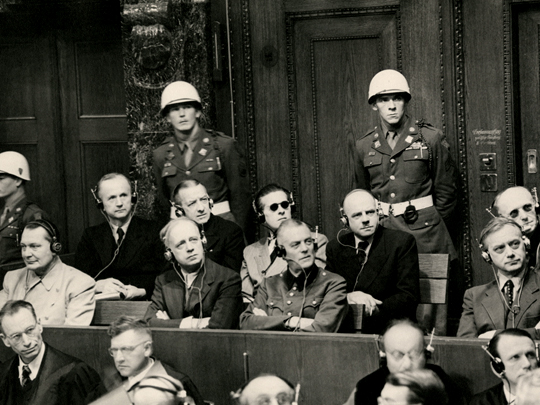By United States Army Signal Corps photographer / Wikimedia Commons / CC-BY-SA-3.0 / GFDL
1 – 22 Nazi Leaders Found Guilty of War Crimes at Nuremberg
The Nuremberg trials were a series of military tribunals, held by the Allied forces after World War II. The trials were held in the city of Nuremberg, Germany.
They were notable for the prosecution of prominent members of the political, military, judicial and economic leadership of Nazi Germany who planned, carried out, or otherwise participated in The Holocaust and other war crimes.
The first, and best known of these trials, described as “the greatest trial in history” by one of the British judges who presided over it, was the trial of the major war criminals before the International Military Tribunal.
Not included were Adolf Hitler, Heinrich Himmler, and Joseph Goebbels, all of whom had committed suicide, well before the indictment was signed.
Held from 20 November 1945 to 1 October 1946, the Tribunal was given the task of trying 24 of the most important political and military leaders of the Third Reich.
However, one of the defendants, Martin Bormann, was tried in absentia, while another, Robert Ley, committed suicide within a week of the trial’s commencement.
The second set of trials of lesser war criminals was conducted under Control Council Law No. 10 at the U.S. Nuremberg Military Tribunals, which included the Doctors’ Trial and the Judges’ Trial.
2 – The First Indochina War

The First Indochina War began in French Indochina on 19 December 1946 and lasted until 1 August 1954.
Fighting between French forces and their Viet Minh opponents in the South dated from September 1945.
The conflict saw the French Union’s French Far East Expeditionary Corps, supported by the Vietnamese National Army up against the Viet Minh, led by Ho Chi Minh and the People’s Army of Vietnam led by Vo Nguyen Giap.
Most of the fighting took place in Tonkin in Northern Vietnam, although the conflict engulfed the entire country and also extended into the neighboring French Indochina protectorates of Laos and Cambodia.
3 – Emperor Hirohito of Japan Announces he is Not a God

The Humanity Declaration is an imperial rescript issued by Emperor Hirohito (Shōwa) as part of a New Year’s statement on 1 January 1946, at the request of the Supreme Commander of the Allied Powers.
In the rescript, which follows the Five Charter Oath of 1868, the Emperor denied the concept of his being a living god.
It would eventually lead to the promulgation of the new Constitution, under which the Emperor is “the symbol of the State and of the unity of the people.
